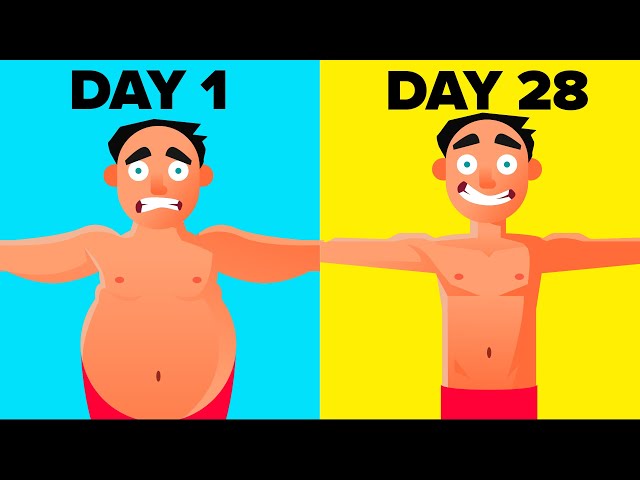
Losing weight is a goal many aspire to achieve, and one prevalent question arises: Can you really lose 10 pounds in a month? While some would say it's possible, others caution against setting such an ambitious target. What does this journey look like? Let’s delve into the reality of weight loss and the strategies that can lead to sustainable results while maintaining health.
To understand the intricacies of losing weight, have you ever asked, “How much of this is feasible without compromising my well-being?” Health experts emphasize the importance of a balanced approach to weight loss. Consistent with insights from various doctors and dietitians, aiming to lose about 1 to 2 pounds per week stands out as a norm, positioning losing 4 to 8 pounds as a safer target over four weeks. However, the allure of shedding 10 pounds within a month continues to draw many.
According to Healthline, the possibility of losing 10 pounds hinges on creating a calorie deficit—burning more calories than consumed. A pound of fat approximately equals 3,500 calories. To achieve a 10-pound loss in just 30 days, an individual must create a deficit of 35,000 calories, translating to about 1,166 calories per day. This demanding figure raises the stakes significantly.
Interviews with nutritionists reveal that simply slashing calories isn’t a magical fix. “Eating lesser isn’t necessarily better,” shares dietitian Amy Fessler. “Instead, focus on wholesome foods like fruits and whole grains that provide nourishment and satiety.” A sudden lack of nutrition can lead to energy dips and cravings, ultimately derailing weight loss efforts.
Looking at actionable strategies is essential. Firstly, consider tracking your daily caloric intake. Apps that log meals can provide insights into consumption habits. What about exercise? A mix of cardiovascular and strength training several times a week can amplify calorie expenditure and accelerate weight loss. "A brisk 30-minute walk five times a week can greatly enhance your efforts, adjusting daily routines for activity is key,” advises fitness coach Jessica Lee.
Hydration also plays a pivotal role. Dietitian Sarah Ko tells her clients, “Opt for water instead of sugary drinks. Staying hydrated not only keeps you full, but it also plays a role in metabolic processes.” An increase in water intake can aid in digestion and lessen unnecessary snacking between meals.
Additionally, meal planning serves as a cornerstone in eating habits. “Decide on your meals ahead of time,” suggests culinary nutritionist Tara Mills. This strategy allows you to avoid impulsive food choices that often undermine goals. Meal prep can include preparing healthy snacks to bridge any hunger gaps without straying toward junk food.
However, amidst these tactics, familiarity with personal limits remains paramount. Are you in tune with your body? Listening to internal signals like hunger cues is vital. Engaging in a diet that restricts intake dramatically could lead to burnout, or worse, binge-eating cycles. Nutritionist Hannah Cho recommends, “Incorporate foods you enjoy into moderation. At the end of the day, balance is your ally.”
Another often discussed topic in weight loss circles is the efficiency of quick fixes, such as fad diets. Although they may promise rapid results, Cleveland Clinic’s expert team warns about the sustainability of such methods. “Long-term habits take precedence over momentary solutions,” notes Dr. Lydia Smith. It’s crucial to cultivate habits that can be maintained post-diet.
Stress management cannot be overlooked in this discussion, either. Heightened stress levels can lead to emotional eating, jeopardizing weight loss efforts. Techniques like mindfulness and yoga can assist in regulating stress, promoting a healthier relationship with food.
Last but not least, rest cannot be underestimated. An article in Forbes highlights considerations regarding sleep patterns. "Resting well aids in hormone regulation that controls appetite," states sleep scientist Dr. Clara James, encouraging adults to aim for 7-9 hours of quality sleep.
In summary, the pursuit to lose 10 pounds in a month may resonate with many on a personal journey. However, it’s essential to address this goal with a mindset focused on health rather than just a number. The combination of balanced nutrition, regular exercise, hydration, and mindfulness will yield results over time, paving the way for realistic and sustainable weight loss. Remember, each step, no matter how small, contributes to the broader journey of well-being. Are you ready to embark on the path toward healthier habits?







